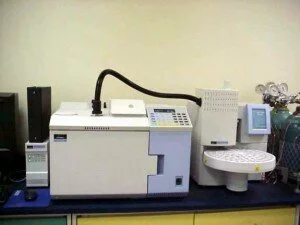Many Michigan DUI lawyers see blood tests as nearly impossible to defend. This may be due to a lack of knowledge on their part, or it may be due to a belief that jurors see blood tests as irrefutable. Regardless of the basis this belief is simply not true. Armed with the right knowledge, blood tests are actually very often easier to defend than are breath test cases.
So, from where does this “right knowledge” come? Well, it comes primarily from two places. First, in order to properly defend a DUI case in Michigan involving blood test evidence, a lawyer must seek out specialized training in gas chromatography. Very few Michigan DUI lawyers actually do this because such training requires a fairly substantial commitment in both time and money.
The Michigan DUI lawyer must also seek out the appropriate information from the laboratory responsible for testing the blood. In a criminal case, getting information from the testing lab requires that the DUI lawyer utilize a process called discovery. As will be shown, when properly pursued, this discovery process can yield some remarkable information – information that can be used to win a client’s DUI case. And, this is exactly what happened recently in both Washington and Colorado.
Problems with DUI Blood Tests in Colorado:
According to Colorado DUI lawyer Tim Bussey, (and as written about in the Colorado Springs Independent):
“The Colorado Springs Metro Forensic Laboratory has reported that it inaccurately reported approximately 200 blood results from 2007 through 2009. Most were from 2009 and all were reported high. The Lab believes that the N-Propanol solution was incorrect which led to an inaccurate high BAC result. They have run their own experiments to determine why the N-Propanol concentration was off.”
Mr. Bussey further stated that: “at this point I am not sure that they (the Colorado Forensic Lab) really know what the problem was and if it has been fixed. I have not heard of such an issue at other labs but it certainly is an area that other DUI lawyers may want to explore.”
Here is an explanation from the Colorado Springs Independent of why this is important:
From a chemist’s point of view, blood alcohol tests are simple: You prepare a batch of maybe 20 samples in glass vials, each with a precise amount of blood, a couple other ingredients, and a solution containing n-propanol, a form of alcohol that is almost never ingested. Each sample gets run twice, along with more than a dozen other solutions used as calibrators and controls.
Once the vials are sealed and catalogued, a machine detects the amounts of ethanol (the stuff in booze) and n-propanol in each, which show up as peaks in a resulting graph. Since the n-propanol amount is supposed to be consistent in all vials, the blood alcohol level can be calculated from the ratio of ethanol to n-propanol.
“All of her ethanol peaks were accurate,” he says, as were the n-propanol peaks for the calibrators and controls. In bad batches, however, her n-propanol peaks were consistently — and inexplicably — lower.
Problems with DUI Blood Tests in Washington:
In Washington the problem was more akin to the outright fraud of the part of a laboratory employee rather than simple neglect or incompetence as was demonstrated in Colorado. According to the Seattle Times:
A San Francisco coroner’s supervising toxicologist vouched for blood-test results in drunken-driving cases for two years before prosecutors told defense attorneys that a Washington state court had labeled her a “perpetrator of fraud” while running that state’s toxicology lab.
The failure to tell defense attorneys about Ann Marie Gordon’s past problems could prove costly to San Francisco District Attorney Kamala Harris’ office.
From 1999 to 2007, Gordon ran the Washington state toxicology lab, whose main job was to analyze tests in drunken-driving cases. The lab was shut down after state agencies discovered that Gordon had vouched in court for the reliability of alcohol-detection equipment when she had not performed the tests herself.
In San Francisco, Gordon has signed sworn statements verifying hundreds of blood-test results, mostly in drunken-driving cases, as a $105,000-a-year supervising forensic toxicologist in the San Francisco chief medical examiner’s office since being hired in 2008. She has also testified in trials.
Interestingly, Michigan pays its toxicologists about the same salary paid to Gordon, but so far, there has been no proof of fraud or obvious neglect in Michigan’s blood testing program. While this is true “so far” this may not always be true. As indicated in the Colorado Springs Independent: “The error (in Colorado) was very difficult to identify,” he says, with no apparent pattern or equipment failure to explain.”
If you are arrested of DUI in Michigan it pays to have a lawyer well trained in blood testing. With proper discovery it just may turn out that your blood test was too high.
Get a FREE confidential CASE EVALUATION on your Michigan OWI/OWVI/DUI by calling (248) 306-9159, or filling out this consultation request form. Call now, there’s no obligation!

{ 2 comments… read them below or add one }
Well that was a major significance of a test, to proved whether the accusations are true and correct. But what if there are uncertainties of the tests? Getting involved in DUI takes a lot of risk, that is why being a responsible driver, you must always be in accordance with the law and regulations on the road. Prevention is a lot better than having to cure possible problems that may be bounded to misleading sources of inaccurate results.
Looking for inexpensive forensic blood tester as Federal police arrested and released me after taking blood test almost two years before finding blood sample. I have usual markers in my blood, including a rare type of Hep C and certain medications I have taken for four years until six months ago.
Please contact me at 415-922-6640
CAPTCHA Code* 3D88
Reply